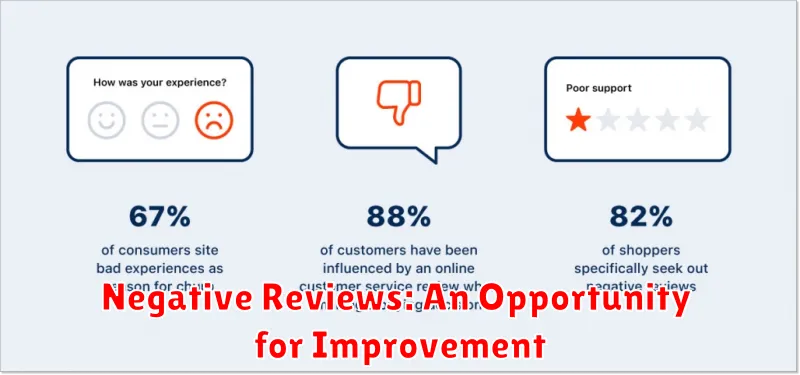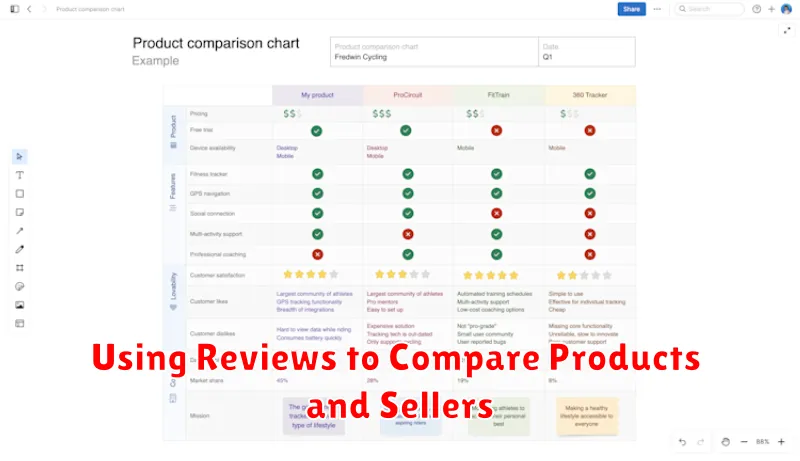In today’s digital marketplace, online reviews wield significant power, shaping consumer perceptions and driving e-commerce decisions. Potential customers rely heavily on the experiences of others, meticulously scrutinizing online reviews before making a purchase. Understanding the profound influence of these reviews is crucial for businesses seeking to thrive in the competitive e-commerce landscape. This article explores the multifaceted ways in which online reviews impact purchasing behavior and how businesses can leverage this powerful tool to enhance their e-commerce success.
From influencing product discovery and building brand trust to mitigating purchase risks and impacting sales conversions, online reviews play a pivotal role in the e-commerce customer journey. The collective voice of the online community holds substantial weight, often surpassing traditional marketing efforts in its ability to persuade and inform. By examining the dynamics of online reviews, businesses can gain valuable insights into customer preferences, identify areas for improvement, and ultimately optimize their e-commerce strategies for increased profitability and customer satisfaction. Exploring the power of reviews is essential for navigating the complexities of the modern online marketplace.
Understanding the Impact of Online Reviews
In today’s digital marketplace, online reviews wield significant power over consumer purchasing decisions. They act as a virtual word-of-mouth, offering valuable insights into the experiences of other shoppers. This social proof plays a crucial role in shaping perceptions about products and brands, ultimately influencing whether or not a potential customer clicks “buy.”
Reviews provide transparency, offering a glimpse beyond the polished marketing materials. They reveal the practical realities of owning and using a product or service, highlighting both strengths and weaknesses. This information empowers consumers to make more informed choices, reducing the perceived risk associated with online shopping.
The impact of online reviews extends beyond individual purchases. They contribute to the overall reputation of a business. A consistently positive review profile can build trust and credibility, attracting new customers and fostering loyalty among existing ones. Conversely, negative reviews can damage a brand’s image and deter potential buyers.
How Reviews Build Trust and Credibility
In the digital age, trust is a critical currency for e-commerce businesses. Consumers are increasingly reliant on online reviews to inform their purchasing decisions. Reviews act as a form of social proof, providing valuable insights from fellow shoppers who have firsthand experience with a product or service.
Credibility is established through the accumulation of authentic reviews. A high volume of positive reviews can signal to potential customers that a business is reliable and offers quality products. Conversely, a lack of reviews, or a preponderance of negative ones, can significantly damage a business’s online reputation.
Transparency plays a key role in building trust through reviews. Openly displaying both positive and negative feedback demonstrates honesty and a willingness to engage with customers. Businesses that actively respond to reviews, addressing concerns and thanking reviewers, further enhance their credibility.
The Psychology Behind Online Reviews and Buying Behavior
Online reviews tap into fundamental psychological principles that influence consumer behavior. Social proof plays a significant role, as individuals tend to conform to the actions of others, especially in uncertain situations. Seeing numerous positive reviews creates a sense of consensus and encourages potential buyers to follow suit.
Information scarcity is another factor. Limited positive reviews, particularly for niche products, can create a sense of exclusivity and desirability, boosting perceived value. Furthermore, reviews often address cognitive dissonance, the mental discomfort experienced when holding conflicting beliefs. By providing reassuring information and validation, reviews alleviate doubts and reinforce purchase decisions.
The emotional impact of reviews is also crucial. Reading about positive experiences triggers positive emotions in prospective buyers, enhancing their predisposition towards a product or service. Conversely, negative reviews can evoke anxiety and distrust, leading to purchase avoidance.
Positive Reviews: Driving Sales and Customer Acquisition
Positive reviews are a powerful engine for driving sales and acquiring new customers in the competitive e-commerce landscape. They act as social proof, validating the value and quality of products or services to potential buyers.
High ratings and glowing testimonials can significantly influence purchasing decisions. Customers are more likely to choose products with predominantly positive reviews, as these reviews build confidence and reduce perceived risk.
Positive reviews also contribute to improved search engine rankings. Search engines often prioritize businesses with positive online reputations, leading to increased visibility and organic traffic.
Furthermore, positive reviews can foster brand loyalty. When customers have a positive experience and share it through a review, it reinforces their connection with the brand and encourages repeat purchases.
Finally, positive reviews can be leveraged in marketing materials. Sharing snippets of positive feedback on social media or website landing pages can further amplify their impact and attract a wider audience.
Negative Reviews: An Opportunity for Improvement

While negative reviews can initially feel discouraging, they offer invaluable insights for growth and improvement. Rather than viewing them as attacks, businesses should see them as opportunities to address customer concerns and enhance their offerings.
Responding to negative reviews publicly demonstrates a commitment to customer satisfaction. This shows potential customers that the business takes feedback seriously and actively works to resolve issues. A thoughtful and professional response can often mitigate the impact of a negative review and even turn a dissatisfied customer into a loyal one.
Analyzing negative reviews can reveal patterns and trends in customer feedback. This information can be used to identify areas where products, services, or processes need improvement. For example, multiple complaints about slow shipping times can highlight a logistical bottleneck that needs addressing.
By addressing the concerns raised in negative reviews, businesses can improve their products, streamline their operations, and ultimately boost customer satisfaction. This continuous improvement cycle is crucial for long-term success in the competitive e-commerce landscape.
Using Reviews to Compare Products and Sellers

Online reviews are invaluable tools for comparing similar products and the sellers offering them. Product reviews offer insight into the actual user experience, highlighting both strengths and weaknesses not readily apparent in product descriptions. Pay close attention to reviews that discuss features important to you.
Seller reviews, on the other hand, focus on the purchasing experience. These reviews shed light on aspects such as shipping speed, customer service responsiveness, and the seller’s handling of returns or issues. Comparing seller reviews can be crucial when multiple sellers offer the same product.
Use reviews to create a comprehensive picture. A product might be excellent, but a negative seller experience can ruin the purchase. Conversely, a highly-rated seller might not compensate for a subpar product.
How to Spot Fake or Manipulated Reviews
Identifying inauthentic reviews is crucial for making informed purchase decisions. Look for overly positive or negative language without specific details. Generic phrases like “This product is amazing!” or “This is the worst thing ever!” without explaining why can be red flags.
Check the reviewer’s profile. Does the account have a history of reviewing only one brand, or a large number of products in a short time span? This could indicate a paid or bot account. Similarly, profiles with no profile picture or very little activity are suspicious.
Pay attention to the timing of reviews. A sudden influx of positive reviews, especially for a new product, can be a sign of manipulation. Likewise, a cluster of negative reviews appearing simultaneously could be a coordinated attack.
Look for similar wording or phrasing across multiple reviews. Cut-and-paste reviews are a clear indicator of manipulation. If several reviews use the same unusual phrases, it’s likely they are not genuine.
The Importance of Responding to Reviews (Both Positive and Negative)
Responding to reviews demonstrates a commitment to customer satisfaction and fosters trust. It’s a critical aspect of online reputation management.
Responding to Positive Reviews
Acknowledging positive reviews shows appreciation for customer feedback. A simple “Thank you” can go a long way in building customer loyalty. It also reinforces the positive experience and encourages other potential buyers.
Responding to Negative Reviews
Addressing negative reviews professionally and constructively can mitigate damage to your reputation. A thoughtful response can turn a dissatisfied customer into a loyal one. Apologize for the negative experience, offer a solution, and take the conversation offline when necessary. This shows potential customers you value their feedback and are committed to resolving issues.
Never ignore negative reviews. Unanswered negative reviews can be perceived as indifference or an inability to address customer concerns.

